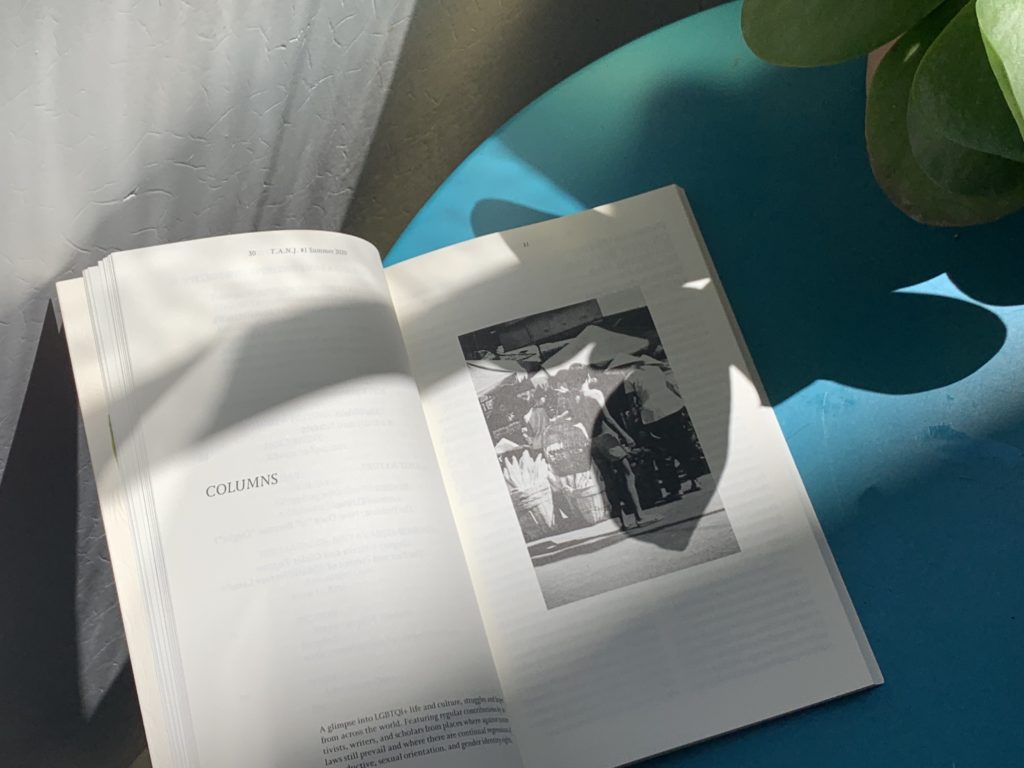Antigender Agendas as Colonial Reestablishments in Brazil and Abya Yala

This text was one of the columns of The Against Nature Journal (T.A.N.J.) issue #1, published by Council in 2020.
Two episodes from the Brazilian context that occurred in the last year might be useful for reflecting on antigender agendas in our regional political contexts.
The first, a legislative attempt in the state of São Paulo to establish “biological sex as the only criterion for the definition of competitors’ gender” in professional sports (Assembleia Legislativa, no. 346, April 2, 2019); the other, violent remarks made by Jair Bolsonaro, (still) the country’s president, about a Rede Globo TV program on trans women and travestis in prison, after the cause of imprisonment of one interviewee was publicized.
By bringing these incidents together, I invite consideration on the connections between antigender agendas (as proposed by Sexuality Policy Watch) and the idea of “colonial reestablishment.” I consider this as a theoretical assemblage of bionecropolitics and colonialities (of power, knowledge, being) that constitute socioeconomic dispositifs and force multipliers, which legitimize, actualize, and normalize the past, present, and future of sociocultural and geopolitical relationships. Colonial reestablish- ment is a present political desire for many worldwide: a “natural” order of things based on supremacist perspectives and hierarchies placed between existences. In this sense, the two episodes are illustrations of institutional exclusion and offenses, perpetrated by political representatives against trans and gender nonconforming peoples, and both evoke a space-time that amounts to at least five hundred years of white, European genocide.
The connections between these events also situate the complexity around the perspectives and rights regarding gender identities, gender expressions, and sex characteristics in resisting against antigender agendas. As detailed in the “Rights at Risk” report by the Observatory on the Universality of Rights in 2017, it is important to realize how such agendas are promoted and funded by secular and religious stakeholders at various levels, and how they affect various groups through different strategies. As some countries implement sex/gender-based social segregation measures during the Covid-19 pandemic, it seems important to map the elements that drive societies’ imaginaries.
These interconnections bring forth the worldwide precarization of socioeconomic rights and autonomy, particularly of marginalized groups, including LGBTI people, in the intersections of race and class. They also highlight the need to locate sociohistorical specificities in understanding the ways in which power operates within colonial ideologies, industrial revolutions, and supremacist projects.
When a bill excluding trans women from professional sports is proposed—ignoring directions from international bodies on the issue— it is not a mere act of excluding a social group from an occupation.
A deeper question arises: Can trans politics allow us to better regard broader economic injustices of gendered bionecropolitics? Could it contribute to a collective rethink- ing of the professional sports’ hyperproductive, corrupt economies, and the gendered dispositifs they rely upon?
And when a gesture of “humanized” treatment toward trans women and travestis in prisons is instrumentalized by Bolsonaro’s Ma a through insults, it is not solely about defending individual rights independently of one’s crimes, but an opportunity to promote critical perspectives on judicial rights and the prison- industrial complex and its increas- ingly privatized, mediatized functions; a complex that must be linked to the extreme global extractivism, militarism, and fas- cism which organize violence.
I share these few thoughts in the hope of situating antigender agendas within the attempts of colonial reestablishment operating today in Brazil and Abya Yala through bio-necropolitical supremacisms and extractivisms, which in relation to data invisibilities and exotisms also interrogate the political role of the sciences. To connect these dots, especially in times of pandemia, seems critical for our collective survival and well-being.
Viviane Vergueiro is a researcher and transfeminist activist working from Salvador, Bahia, Brazil. A PhD candidate
in Gender Studies at Universidade Federal da Bahia, she is also part of the research center Núcleo de pesquisa e extensão em Culturas, Gêneros e Sexualidades at the university, and a project coordinator for Akahatá, a team working to advance LGBT and sexual rights.
TEXT BY
Viviane Vergueiro
This text was part of The Against Nature Journal (T.A.N.J.) issue #1, published by Council in 2020.
Top image : T.A.N.J #1, Columns, 2020, Council.
T.A.N.J. #1
Articles
Thinking Through Religion
— Aimar Arriola
How to Binj
— Amatesiro Dore
A queer ‘we’?
— Linn Marie Tonstad
Columns
Pride in Jesus Church Service: Bridging the Divide in Barbados and the Caribbean
— Donnya Piggott
Antigender Agendas as Colonial Reestablishments in Brazil and Abya Yala
— Viviane Vergueiro
A Church Coalition’s Rainbow-Inclusion Efforts in India
— Pawan Dhall
The Trial of Kenya’s LGBT Community in the Court of Public Opinion
— Kari Mugo
LGBTQI of the Lebanese Revolution Don’t Need Permission
— Dayna Ash
Of Islamic Laws and the Colonial Past: The Conundrums Faced by the Malaysian LGBT Community
— Niza
Love in the Time of Corona
— Naoufal Bouzid
A Trojan Horse for Warsaw’s Castle
— Eliel Jones
Events
แปร่ง // praeng
– a project by Wirunwan Victoria Pitaktong & Jeanne Penjan Lassus, Bangkok, 2020
Introducing T.A.N.J #1
– online conversation with Vivek Divan, Kari Mugo, Linn Marie Tonstad & the editors